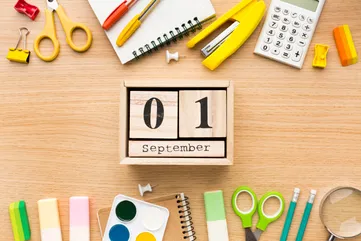Focus Strategies
Focus strategies are specific techniques and environmental modifications that help teens maintain attention on tasks despite internal and external distractions.
Why personalization is crucial
Research on attention and focus reveals significant individual variation in what enhances concentration. Some people focus better with background music; others need silence. Some benefit from movement; others need stillness.
Studies of successful students show they develop personalized focus strategies rather than following generic advice. The key is systematic experimentation to identify what works for your teen's unique brain, then consistently applying those strategies.
Rowe et al. (2021) found that individualized attention training produces better outcomes than generic approaches. McDermott et al. (2019) demonstrated that environmental preferences for focus vary significantly among students with ADHD.
You're not alone
If your teen's focusing attempts fail repeatedly, or they insist "nothing works," they need a broader strategy toolkit. Many parents suggest strategies that worked for them without realizing teens might need completely different approaches. Building a personalized focus toolkit takes experimentation. Families who develop multiple strategies report more consistent homework completion and less frustration.
What it looks like day to day
Student
Your teen uses noise-canceling headphones for reading, the Pomodoro Technique for math, and body-doubling for essay writing.
Parent
You notice your teen selecting different focus strategies based on the task, time of day, and energy level rather than forcing one approach.
Tiny steps to try
Build a diverse focus strategy toolkit through experimentation.
- 1
Strategy testing
Try different approaches systematically. Track what works for which subjects and situations.
- 2
Layered strategies
Combine compatible approaches. Timer + music + fidget tool might work better than any alone.
- 3
Pre-focus rituals
Develop consistent startup routines. [Same preparation sequence](/the-parent-bit/finding-order-in-the-chaos-setting-up-calendars-for-kids) signals brain to focus.
- 4
Break strategies
Plan focus breaks before focus fails. Different break types for different focus sessions.
- 5
Emergency strategies
Have backup plans for when primary strategies fail. Bad focus days need alternative approaches.
Why multiple strategies matter
Different situations, subjects, and mental states require different focus approaches. What works for math might fail for reading.
Categories of focus strategies:
• Environmental: Controlling physical space
• Temporal: Managing when and how long to focus
• Cognitive: Mental techniques for maintaining attention
• Physical: Using movement and body-based approaches
• Technological: Apps and tools supporting focus
• Social: Using others for accountability
Having varied strategies prevents dependence on single approaches.
References
McDermott, A. F., Rose, M., Norris, T., & Gordon, E. (2019). Environmental strategies to support focus in students with ADHD. Journal of Attention Disorders, 23(1), 5-15.
Rowe, A., Titterington, J., Holmes, J., Henry, L., & Taggart, L. (2021). Interventions targeting attention in young people with neurodevelopmental differences: Systematic review. Developmental Medicine & Child Neurology, 61(1), 57-67.
Ready to help your teen thrive?
Get personalized 1-on-1 coaching to build better habits and boost grades. Join 10,000+ families who trust Coachbit.
Frequently Asked Questions
My teen insists they focus better with TV on. Could this be true?
Possibly. Some people, particularly those with ADHD, focus better with consistent background stimulation that occupies the part of their brain seeking novelty. However, content matters—familiar, non-verbal background might help while engaging shows definitely distract. Test objectively: compare work quality and speed with and without TV.
Should focus strategies change with age?
Yes. Strategies that work at 13 might fail at 17. Brain development, changing academics, and life circumstances require strategy evolution. Regular strategy audits ensure continued effectiveness. What matters is maintaining a experimental mindset—keep what works, modify what doesn't, try new approaches.
Related Terms
Attention Management
Attention management goes beyond basic focus to include strategically allocating mental energy, minimizing distractions, and creating systems that protect deep work time throughout the day.
Environmental Design
Environmental design is intentionally structuring physical and digital spaces to make desired behaviors easier and undesired behaviors harder.
Focus
Focus is the ability to direct and sustain attention on relevant information or tasks while filtering out distractions, requiring both concentration and mental endurance.
Related Articles

Finding Order in the Chaos – Setting up Calendars for Kids
Creating a calendar and daily schedule for kids can be beneficial to manage school, homework, extracurriculars and hobbies. Color-coding and time-blocking are helpful tools for kids with ADHD.
Read article
3 Ways an Executive Functioning Coach Can Help Your Child
Discover why executive functioning skills are crucial for your child's success. Learn how an executive functioning coach can make a difference
Read article
The 6 Best Study Skills for ADHD Teens
Learn the 6 best study skills for ADHD teens to boost their academic success. Prioritization, note-taking, dedicated study space, brain breaks, and multi-sensory learning. Find out how an ADHD coach can help!
Read article
